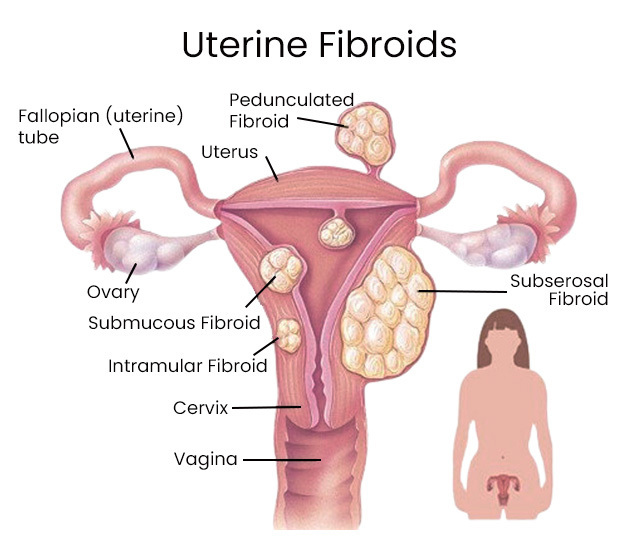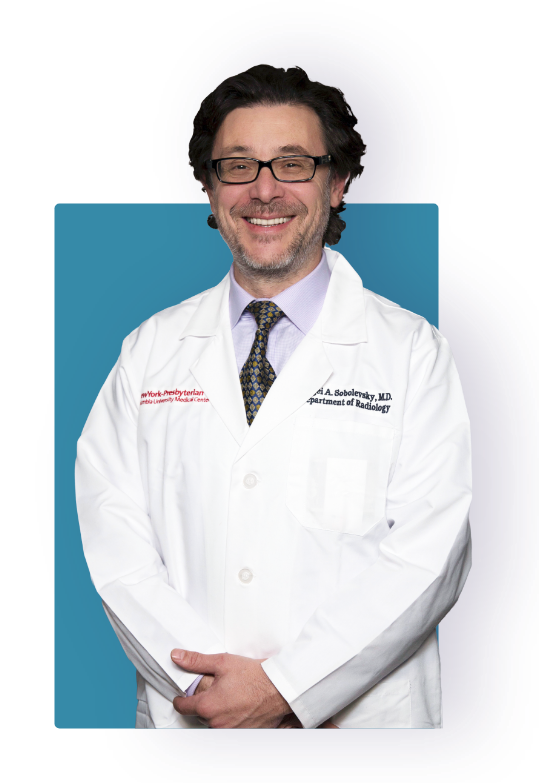Fibroids bleeding ranges from being mildly annoying for some women to severe in others. Besides fibroids, the bleeding may also be a symptom of adenomyosis. If you notice severe symptoms, seek treatment for fibroids and heavy bleeding to prevent future complications. Call the expert at the Downtown Vein & Vascular Center for the best treatment. An experienced fibroids doctor services the Brooklyn area, as well as greater New York City, from this state-of-the-art facility.
What Is Fibroids Bleeding?
Fibroids, also known as leiomyomas, are non-cancerous growths that form in the walls of your uterus. Fibroids bleeding occurs when these tumors press against the uterine lining, disrupting the uterus from properly contracting to stop blood flow. Growing fibroids and adenomyosis can cause a heavier menstrual flow.
Bleeding due to fibroids is much heavier than a normal bleeding during a period, and it can last longer than your average period. Fibroids bleeding can also show up as spotting or overt bleeding between periods. Treatments for heavily bleeding fibroids are offered by an experienced doctor like Dr. Sergei Sobolevsky at the Downtown Vein & Vascular Center in NYC.

What Are the Symptoms of Fibroids Bleeding?
Some women experience insignificant or no symptoms at all with the development of fibroids. Get regular gynecological checkups and visit your NYC doctor when you notice heavier, longer and more painful periods. Your doctor knows the difference between a normal heavy period and a heavy period due to fibroids.
Your heavy period may be due to fibroids bleeding or adenomyosis if it’s irregular and/or heavy. In some cases, your bleeding may be so heavy that you may experience symptoms of major blood loss, such as extreme fatigue associated with anemia, sometimes requiring blood transfusions. The symptoms due to bleeding fibroids include:
- Lengthy periods. Fibroids cause periods to last much longer than normal, sometimes with continuing spotting or overt bleeding between periods.
- Anemia occurs when the red blood cell count decreases and may even plummet to a dangerous level, causing extreme fatigue and weakness
- Pelvic pressure. Severe cramping and pressure in the pelvis, lower back and legs may be present. This pressure can also affect your bladder, making it more difficult to empty it or causing frequent urination.
- New pain. If the cramping you experience is much more painful than your normal aches of menstruation or if you experience pain and bleeding during sex, you may have uterine fibroids.
★ ★ ★ ★ ★
Professional and Caring
Dr. Sobolevsky was both professional and caring during my vein treatment. He made me feel comfortable throughout the process and provided excellent care. I’m grateful for his expertise and would highly recommend him to anyone seeking vein treatment.
What Causes Fibroid Bleeding?
Fibroids are very rich with blood vessels, and their growth leads to heavier bleeding and periods that last longer than normal. During a normal period, the uterus contracts once hormone levels lower enough to stop the bleeding. Fibroids bleeding can be due to high levels of hormone-like substances called prostaglandins that disrupt uterine contractions, resulting in a continuous blood flow that doesn’t stop when expected. These prostaglandins also cause general inflammation that lead to heavier and more painful periods, as well as spotting between periods.
Fibroids can cause heavy bleeding if they’re located at the endometrial lining of the uterus. Adenomyosis may also cause similar symptoms. Other types of fibroids heavy bleeding may be due to:
- Growth of blood vessels. High levels of prostaglandins spur the blood vessels to grow larger, creating a heavier and longer blood flow.
- Size and number of the fibroids. Larger fibroids are more disruptive, leading to heavy bleeding. Multiple fibroids may form a cluster that further irritates the uterine lining.
- Issues with uterine contraction. If your uterus doesn’t contract completely, blood flow may continue, even between periods.
What’s the Treatment for Fibroids?
Because fibroids are so common and in some cases asymptomatic, some women choose to not treat them, opting for a wait-and-see approach. Fibroids may in fact shrink if the level of estrogen decreases. This doesn’t happen often, however, and untreated fibroids can lead to pelvic pain, excessive uterine bleeding, and infertility in the future.
It may not be possible to ignore your fibroids or adenomyosis due to the pain and discomfort they cause. If severe fibroids bleeding is left untreated, blood loss may cause anemia. In addition, fibroids can make you more susceptible to miscarriages, which is a devastating event for any woman. The Downtown Vein & Vascular Center offers a safe and effective treatment: uterine fibroid embolization.
The embolization procedure involves injecting tiny particles into the arteries supplying uterine fibroids with blood to stop the blood flow to the fibroids, ultimately causing them to shrink and die. Contact the Downtown Vein & Vascular Center to be evaluated for uterine fibroids and receive an effective heavy bleeding fibroids treatment. The sooner you undergo treatment, the sooner you get back to your normal self.

I am Dr. Sergei Sobolevsky, a leading specialist in endovascular medicine. Having performed over 25,000 procedures throughout my career, I bring decades of experience in vascular and interventional radiology to my practice. I obtained my Doctor of Medicine (MD) degree from the University of Colorado School of Medicine in 1997 and completed my specialty clinical training in vascular and interventional radiology at Harvard University.
My dedication to excellence in patient care has been recognized through accolades such as being named a Castle Connolly Top Doctor and inclusion in the Top Doctors New York Metro Area lists for 2020, 2021, 2022, and 2023. With licenses in multiple states, I have also shared my expertise through presentations at various institutions in the US and abroad.
More About Dr. SobolevskyDowntown Vein Treatment Center
480 Court Street, Ste 101
Brooklyn, NY 11231
(718) 787-5559


